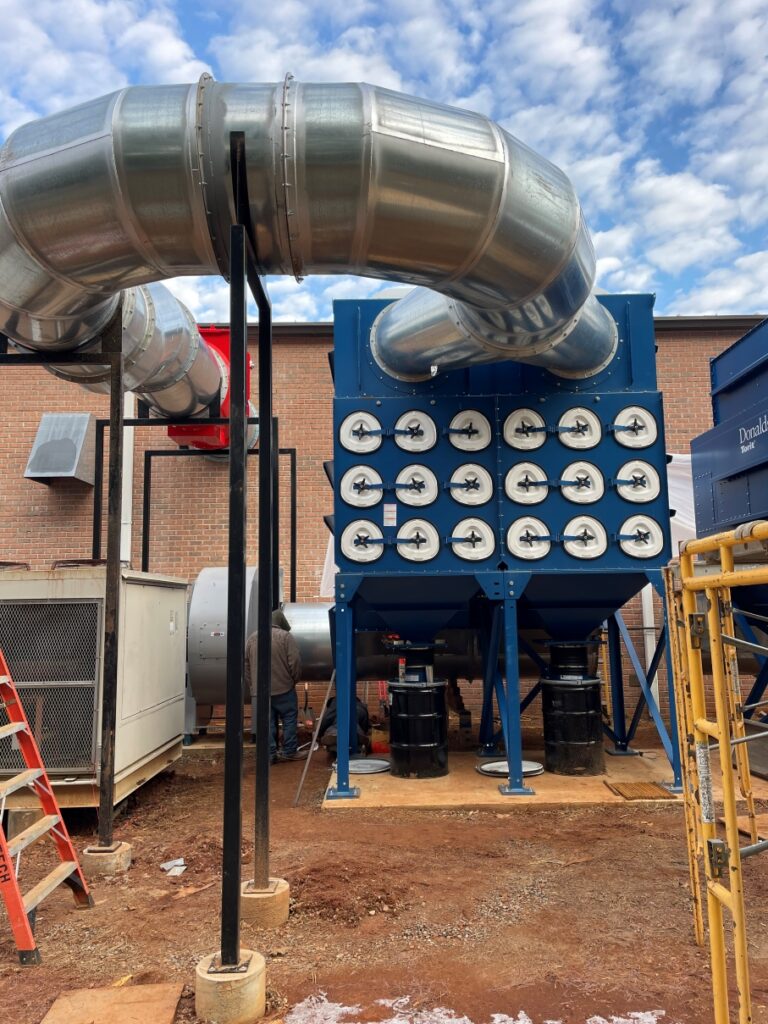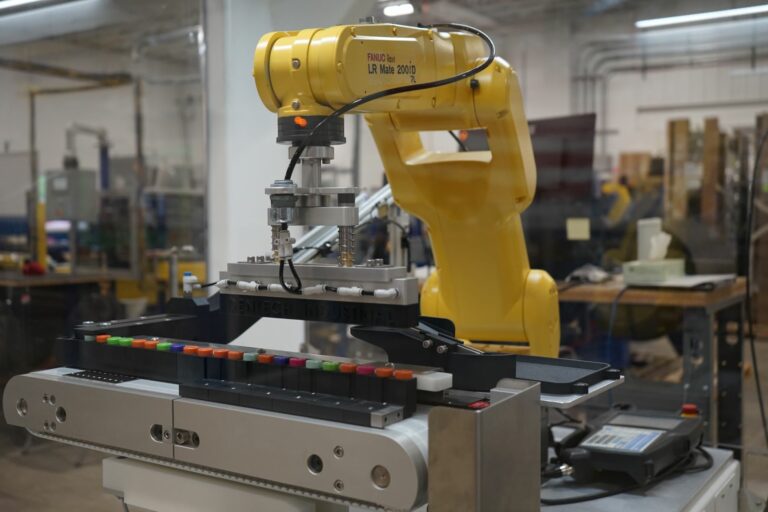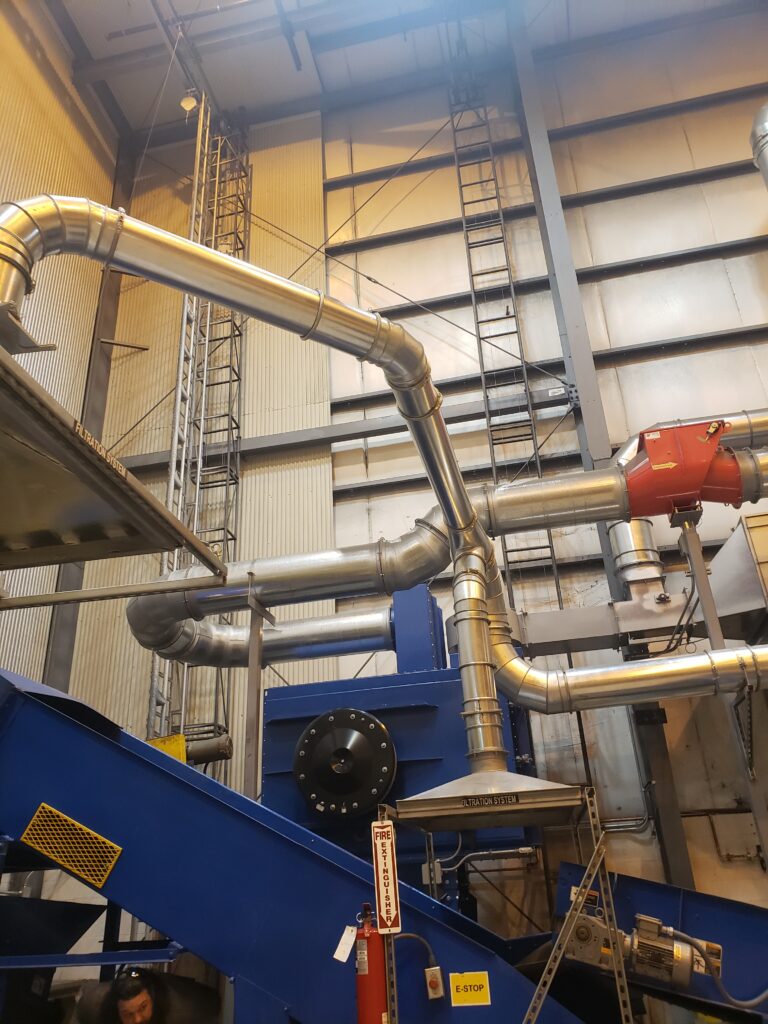Each industry has requirements for welding that depend on the application and materials used.
In the food industry, the most important requirement is sanitation. That’s achieved by the type of metal and the welding procedure.
Stainless steel is typically used in welding for food applications because the final piece is smooth, nonporous, and easy to clean. These characteristics reduce chances of contamination.
Sanitary welds are done using Gas Tungsten Arc Welding (GTAW), also known as Tungsten Inert Gas (TIG) welding. A welder may do this procedure freehand or by using an orbital welding robot.
Components in food applications that DenTech has welded include pans, covers, chutes, and process piping.
DenTech’s welding capabilities span from custom machine components to large structural platforms. Besides food-specific components, we weld galvanized ductwork, handrails, mezzanines, and platforms.
Our welders complete training and certification through the Welder Training & Testing Institute. Most of our welders are certified in 3G (for structural welds) or 6G (the highest certification).
Learn more about our welding and fabrication capabilities.




